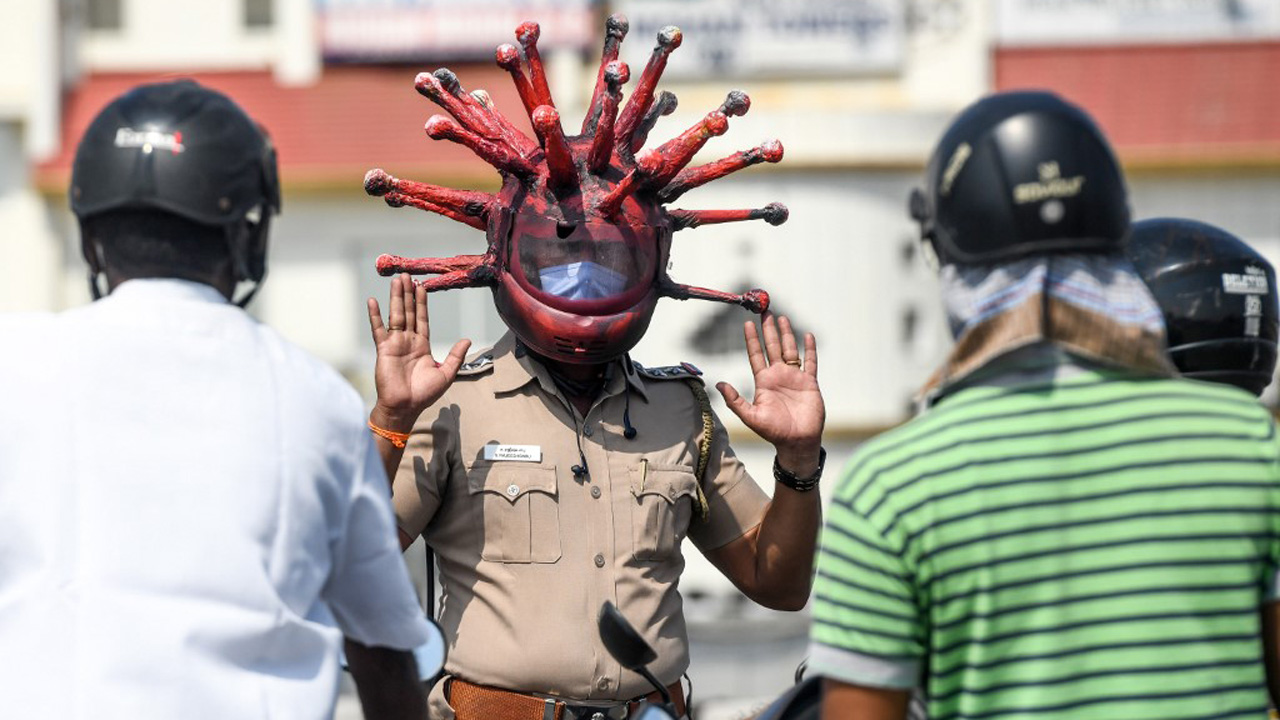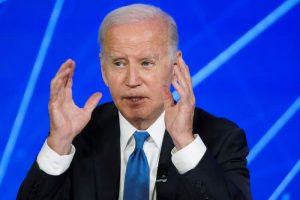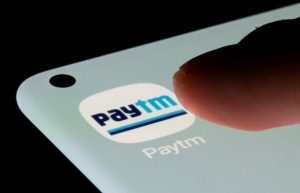Here are the latest developments from Asia related to the novel coronavirus pandemic:
Wuhan eases travel rules
Wuhan, the central Chinese city where the coronavirus first emerged last year, partly reopened on Saturday after more than two months of near total isolation for its population of 11 million.
People are now allowed to enter the city but not leave. Crowds of passengers arrived at Wuhan railway station, most wheeling suitcases alongside them.
The metropolis in Hubei province was placed under lockdown in January with its outskirts ring-fenced by roadblocks and drastic restrictions on daily life.
Security talks cancelled in Singapore
A top Asian security conference that gathers defence ministers – including from the US and China – and senior military officials was cancelled due to the pandemic.
The Shangri-La Dialogue, held annually since 2002, had been scheduled for early June in Singapore with more than 40 countries set to participate.
Super-spreader Indian guru
At least 15,000 people in northern India who may have caught the coronavirus from a super-spreader guru are under strict quarantine after the Sikh religious leader died of Covid-19.
The 70-year-old guru, Baldev Singh, had returned from a trip to Europe’s virus epicentre Italy and Germany when he went preaching in more than a dozen villages in Punjab state.
It has sparked one of India’s most serious alerts related to the pandemic and special food deliveries are being made to each household, under even tighter restrictions than the 21-day nationwide stay-at-home order imposed by the government.
Indian migrants walk home
Thousands of migrant workers in India, left jobless and penniless by the full shutdown of the country, are walking long distances back to their home villages after all transport was stopped except for essential services.
Many are also cramming onto buses organised by state governments to get them home.
There were chaotic scenes at the Anand Vihar bus terminal on the Delhi border with Uttar Pradesh on Saturday with queues up to a kilometer long and people fighting over seats.
Brunei reports first death
Brunei reported its first coronavirus death on Saturday – a 64-year-old man who was the country’s 25th confirmed Covid-19 case.
The man had travelled to Cambodia and Kuala Lumpur but did not take part in a huge Islamic gathering in the Malaysian capital last month that has been linked to infections across the region, authorities said.
It came as Malaysia, which has recorded more than 2,320 virus cases, received tens of thousands of virus test kits, masks and items of protective clothing from China, and 200 ventilators.
South Korea recovers
More than 50% of South Korea’s 9,478 confirmed coronavirus cases have now recovered, authorities said on Saturday.
The figures are “a small achievement that our entire society can celebrate together”, disaster agency official Yoon Tae-ho said.
Once the hardest-hit country outside China, South Korea appears to have brought its outbreak under control. It has tested more than 380,000 people in a process that is free to anyone referred by doctors or those who have links to a confirmed case.
Aussie local election goes ahead
People in the Australian state of Queensland were urged to vote in local elections or face a fine of A$133 ($80), as polls went ahead despite most citizens being encouraged to stay home to stem the spread of the coronavirus.
Many of the three million eligible voters had cast their ballot early, or remotely by post or telephone. But long queues were reported outside some booths on Saturday due to limits on the number of people allowed inside at once.
Police officer tested after alleged spitting
An Australian police officer is being tested for Covid-19 after a 25-year-old woman arrested in Sydney for speeding allegedly spat and coughed in their face.
The woman claimed she was on her way to be tested for the virus, police said. Although the woman was not showing any symptoms, the officer is now undergoing testing.
It is the latest of several reported incidents of people maliciously coughing towards others as the outbreak spreads.
South Africans exit quarantine after China return
President Cyril Ramaphosa on Sunday oversaw the release of dozens of South Africans who had been in quarantine since returning from Wuhan in China earlier this month.
South Africa, which has the highest number of infections of any African country, was on Sunday observing the third day of its 21-day lockdown to halt the spread of the virus.
Ramaphosa went to a remote resort near Polokwane city in the northern Limpopo province for the release of the 114 South Africans who had been isolated since March 14 when they were evacuated from China.
The group had been working and studying in Wuhan, then the epicentre of the virus, which was placed under lockdown for more than two months after the novel coronavirus was first detected in December.
Ramaphosa ordered their repatriation late last month, responding to calls from their families.
They were all free of the deadly novel coronavirus on their return, but still quarantined.
Ramaphosa said the group – having been under quarantine in Wuhan for 51 days and a further 14 days in South Africa – were proof that lockdowns were the right strategy.
“You are the best campaigners for a lockdown because you more than anyone else have seen that a lockdown does work.”
First case in Cape Town township
The number of coronavirus infections climbed to 1,280 on Sunday, government statistics showed as the city of Cape Town recorded the country’s first positive case in a township.
Local government administrators in Cape Town said a case had been detected in Khayelitsha, the city’s largest township, where hundreds of thousands live in shacks.
An outbreak in the crowded townships where water and sanitation are problematic, could prove difficult to contain in the country which already has the highest number of infections in Africa.
Health Minister Zweli Mkhize also reported the country’s second death from coronavirus, a 74-year-old man who had skin cancer.
Ramaphosa has ordered the country’s 57 million inhabitants to stay at home, deploying police and the military to enforce restrictions.
But authorities have often struggled to get people to comply.
“This lockdown must be taken seriously by our people,” said President Cyril Ramaphosa on Sunday.
AFP
























